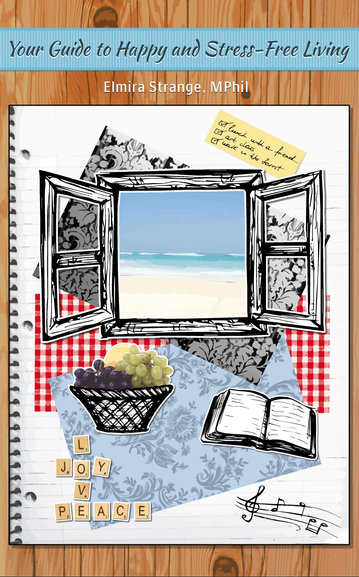What is OCD
(Obsessive-Compulsive Disorder)
From time to time we all have some urges to do what might seem to be a
bit embarrassing.
Have you ever checked that you locked the door, turned
the water tap off, or turned the gas off knowing that you actually did
it several minutes ago?
If it happens to you once in a while, then there
is nothing to worry about. But what is ‘once in a while’?
When would we call it obsessive-compulsive disorder?
by Elia Strange

What is OCD
Obsessive-compulsive
disorder (OCD) is an anxiety disorder, where the mind becomes flooded
with persistent and uncontrollable thoughts, and the individual feels the need to repeat certain behaviour again and again, which is distressing and interferes with their everyday functioning.
Around 2.3-2.5 percent of the population is affected and most of them
are women. Nearly 2.2 million Americans are affected by OCD each year.
It
is not uncommon for someone with OCD to experience severe generalised
anxiety, recurrent panic attacks, debilitating avoidance, and major
depression, all occurring simultaneously with obsessive-compulsive symptoms.
What causes OCD
Usually OCD starts either before the age of 10 or in late adolescence or early adulthood. In some rare cases young children are also affected. Psychologists know of children as early as the age of 2, who were affected by OCD.
Later cases usually start after some significant and/or stressful
event: wedding, childbirth, difficulties at work or in the family. Often
people suffering from OCD have other psychological problems such as anxiety or panic attacks.

CASE STUDY: CHUCK
“I’m
a little bit obsessive-complusive... It’s a little difficult to deal
with. The obsessive part – I’ll get a thought in my head, and I can’t
put it out.
It’s just there all the time. I think about it when I go to
bed, I think about it when I get up... I’m a ‘checker’ – I have to check
things... I don’t cook, but I have to check the stove every morning...
not always really rational.”
Common OCD behaviours:
- Feeling the need for cleaning and tidying which can last hours or even most of the day
- Avoiding particular objects, for example – anything of brown color
-
Performing repetitive, magical, protective practices, such as counting,
saying certain numbers, or touching talisman or a particular part of
the body
- Checking, going back seven or eight times to verify
that already performed acts were actually carried out (e.g. doors
locked, gas faucets turned off, windows shut)
- Performing a particular act, such as eating extremely slowly

CASE STUDY:
Richard
Enslaved by Ritual
Richard,
a 19-year-old college freshman majoring in philosophy, withdrew from
school because of incapacitating ritualistic behaviour.
He abandoned
personal hygiene because the compulsive rituals that he had to carry out
during washing or cleaning were so time consuming that he could do
nothing else. Almost continual showering gave way to no showering. He
stopped cutting and washing his hair and beard, brushing his teeth, and
changing his clothes. He left his room infrequently and, to avoid
rituals associated with the toilet, defecated on paper towels, urinated
in paper cups, and stored the waste in the closet.
He ate
only at night when his family was asleep. To be able to eat he had to
exhale completely, making a lot of hissing noises, coughs, and hacks,
and then fill his mouth with as much food as he could while no air was
in his lungs.
He would eat only a mixture of peanut
butter, sugar, cocoa, milk, and mayonnaise. All other foods he
considered contaminants. When he walked he took very small steps on his
toes while continually looking back, checking and rechecking. On
occasion he run quickly in place. He withdrew his left arm completely
from his shirt sleeve as if he was crippled and his shirt was a sling.
Is it treatable?
Obsessive-compulsive disorder is one of the most difficult problems to treat. About 20 percent of people may recover completely (often after many years of therapy and treatments).
Some
psychological therapies, for example, Exposure and Ritual Prevention
(ERP), involve patients being exposed to their ritualistic behaviours
(e.g. washing hands after touching a dirty dish) and teaching them to
refrain from the act (e.g. washing their hands).
Other
therapies, such as Rational Emotive Behaviour Therapy, help the patients
to change their thinking and reduce their OCD behaviour through this
cognitive approach.
Finally, certain drugs
(Biological treatment), mainly antidepressants, increase the patients’
serotonin levels in the brain. The problem with these drugs is that
although they are very effective whilst you are taking them, they often have many unpleasant side effects. So therefore, psychological treatments are often preferable.
Other Articles you might be interested in:
What is Bipolar Disorder
Life's too f***ing short
Do I have Anxiety Disorder?
Do I have Social Anxiety?
How well can you cope with stress? (Test)
... or go to:
Archives of all Articles
Archives (Page 2)
Coping with Stress (HOME PAGE)
'What is OCD' Article Reference:
-Davison, G.C., Neale, J.M., & Kring, A.M. (2004). Abnormal Psychology. (9th ed). USA: Wiley.
-Anxiety and Its Disorders: The Nature and Treatment of Anxiety and Panic (2nd ed)
-Durand, V.M. & Barlow, D.H. (2006). Essentials of Abnormal Psychology. (4th ed.). Belmont, USA: Thomson Higher Education.
Or follow me on Twitter and Google+ by clicking on the symbols below:
Sign
up below to receive my free email newsletter with new fresh articles to
help you to become healthier and happier.
It's sent about once a month.
No spam. No
sharing of your email address. Easily unsubscribe at any time.
Best Articles:
10 tips to strengthen your marriage
Best ways to manage your stress
How to get what you want (the Law of Attraction)
Why do I need to eat healthy?
Signs and stages of stress
13 Facts about sugar addiction
7 Reasons for our unhappiness
Why people commit suicide
How to get a good night sleep
Try these Tests and Quizzes:
Is it time to take stress seriously?
How well do you know yourself?
Can you talk to teenagers?
Do you have a time to recreate?
Can you cope with stress well?
The Latest Articles:
Green Smoothie Recipe
Stress in Parents and Carers of disabled children (VIDEO)
Did you find your dream job yet?
Is an eye mask good for sleeping?
How to look and appear confident
Why am I tired all the time?
Exercise tips: 8 easy ideas for losing weight and become fitter
15 Sure signs that you are stressed
Are memory foam mattresses worth it?
How stress affects your health: What stress is doing to your body
How to get what you want (the Law of Attraction)
How to be more patient
How to deal with SAD: Autumn depression
How to stop negative thinking
How bad is your memory? (Fun Quiz)
What is love - in children words
How to make people like you?
Why do I forget things?
10 Tips to strengthen your marriage
Would you move abroad?
Are holidays worth it?




New! Comments
Have your say about what you just read! Leave me a comment in the box below.